In this issue, Index on Censorship magazine explores the history that led up to the massacre in Tienanmen Square and examines student reactions to the event.
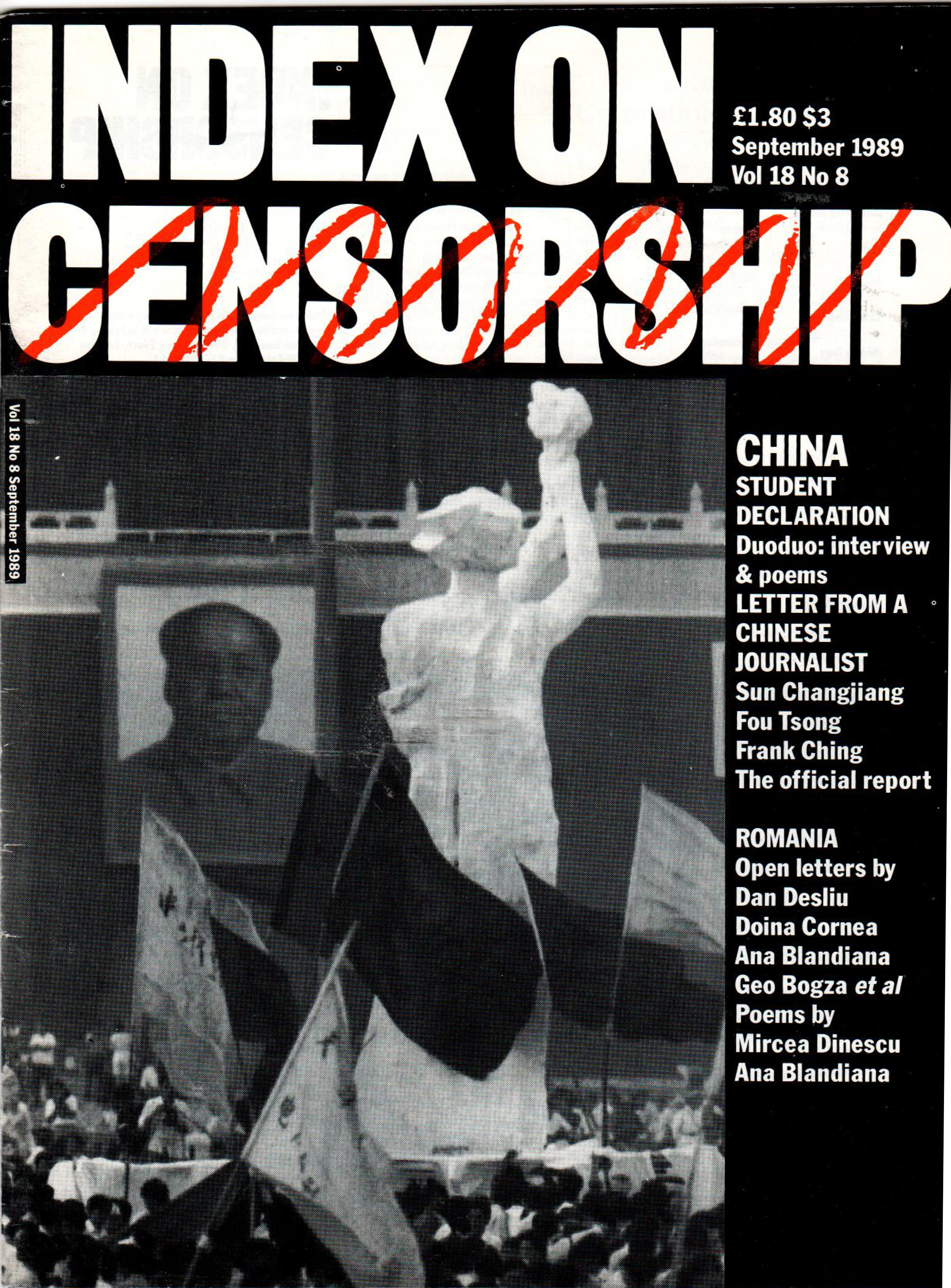

In this issue, Index on Censorship magazine explores the history that led up to the massacre in Tienanmen Square and examines student reactions to the event.

In this issue, Index on Censorship magazine explores secrecy in governments and institutions that control the planet’s fate.

In this issue, Index on Censorship magazine explores the choice between the open and the closed, the secular and the religious, and the fanatical and the tolerant.
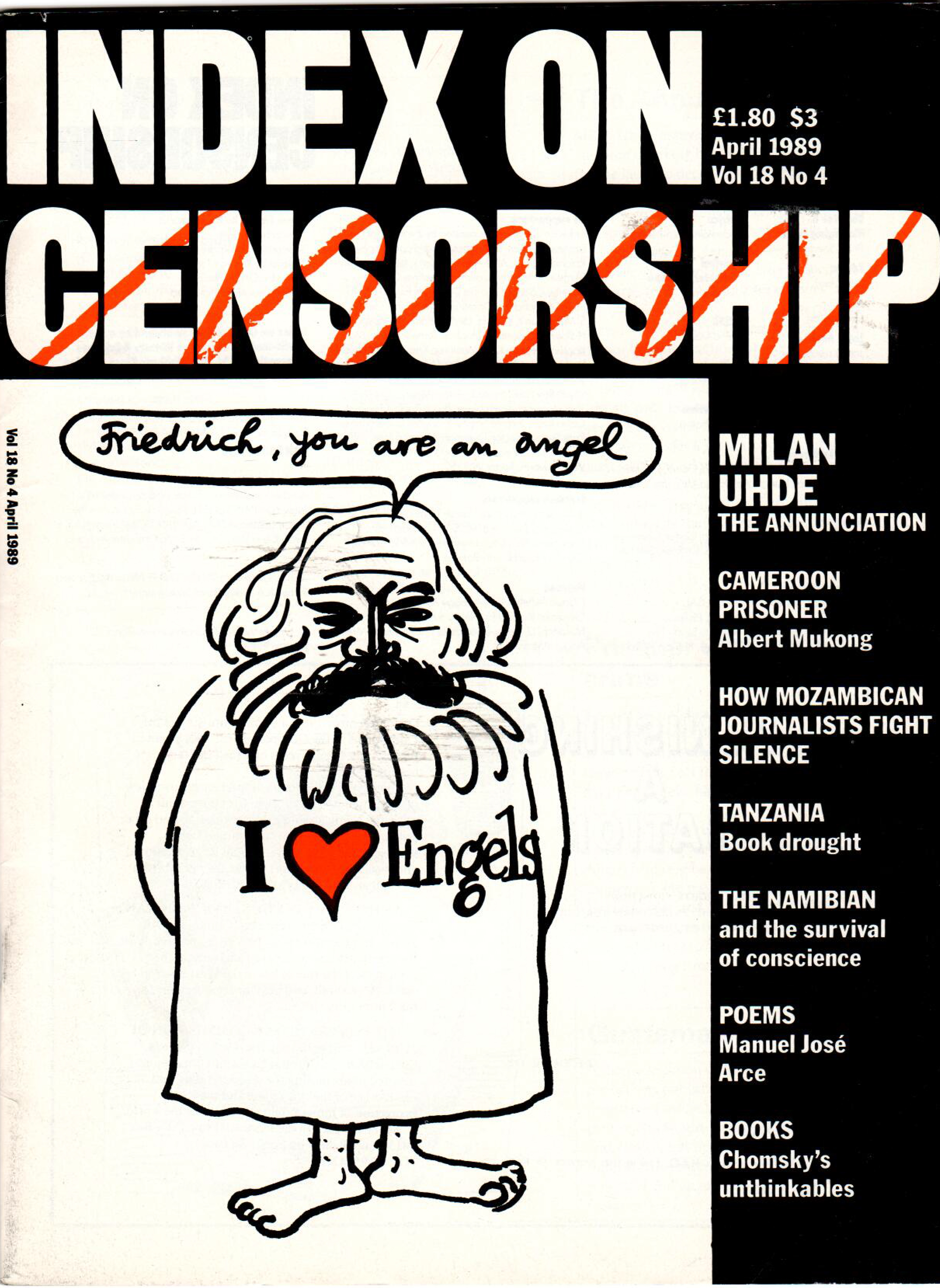
In this issue, Index on Censorship magazine investigates banned authors, and publishes Uhde’s favourite of his own plays: The Annunciation, or: Friedrich, you are an angel.
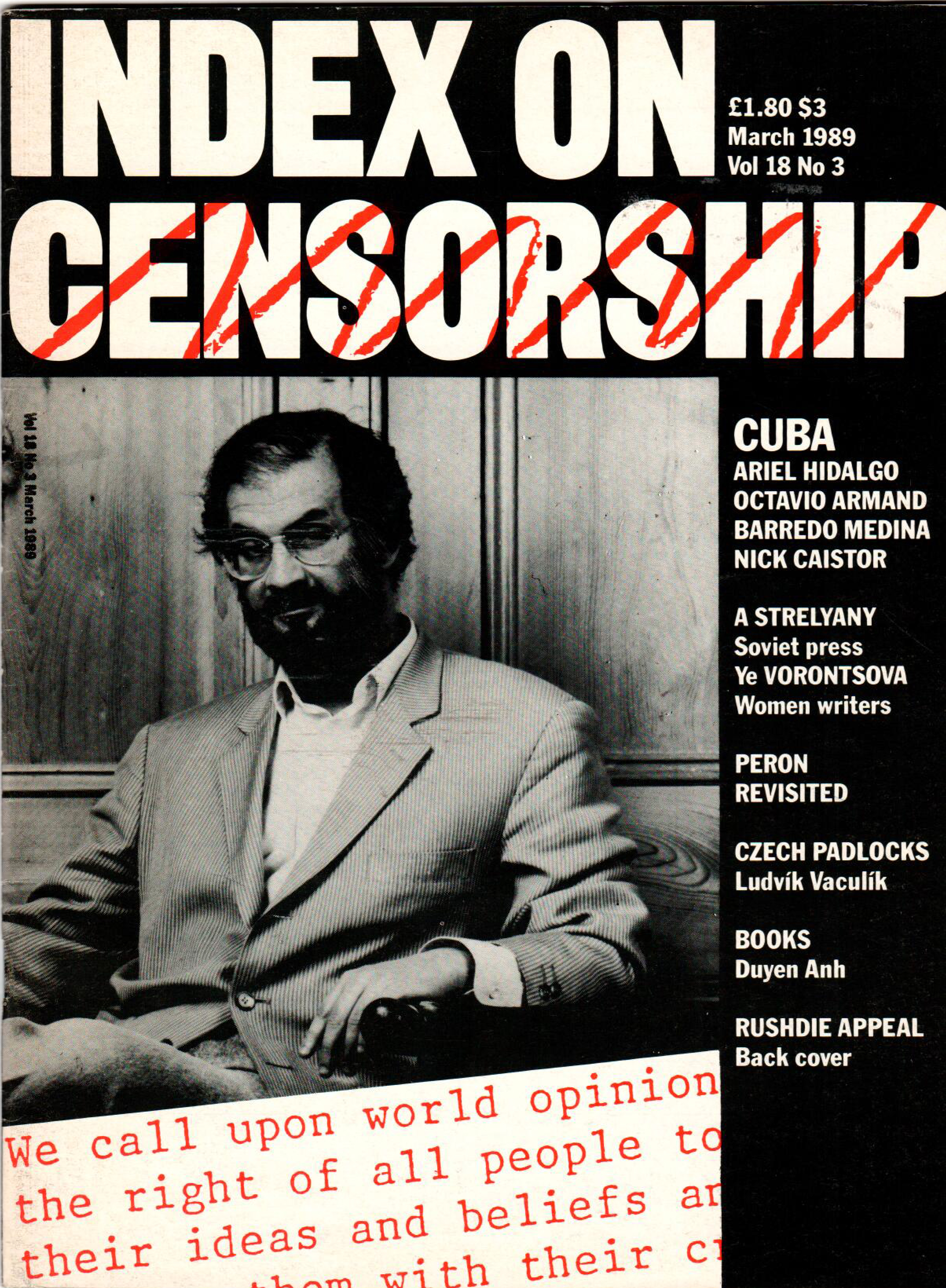
In this issue, Index on Censorship magazine explores how Cubans view themselves, their soul, Fidel, and the world outside.
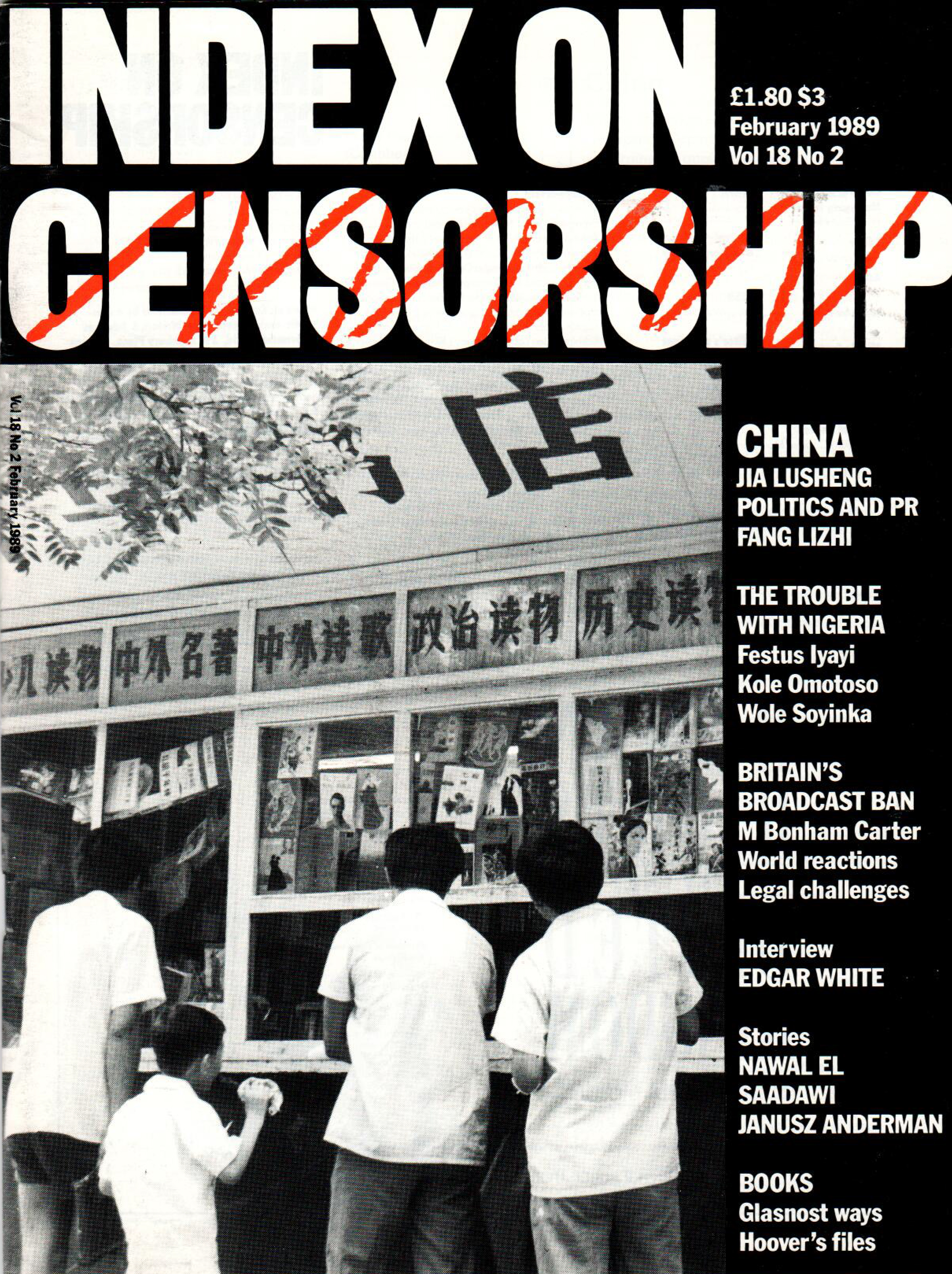
In this issue, Index on Censorship magazine explores China’s censorship policies, and how some booksellers are evading censors.
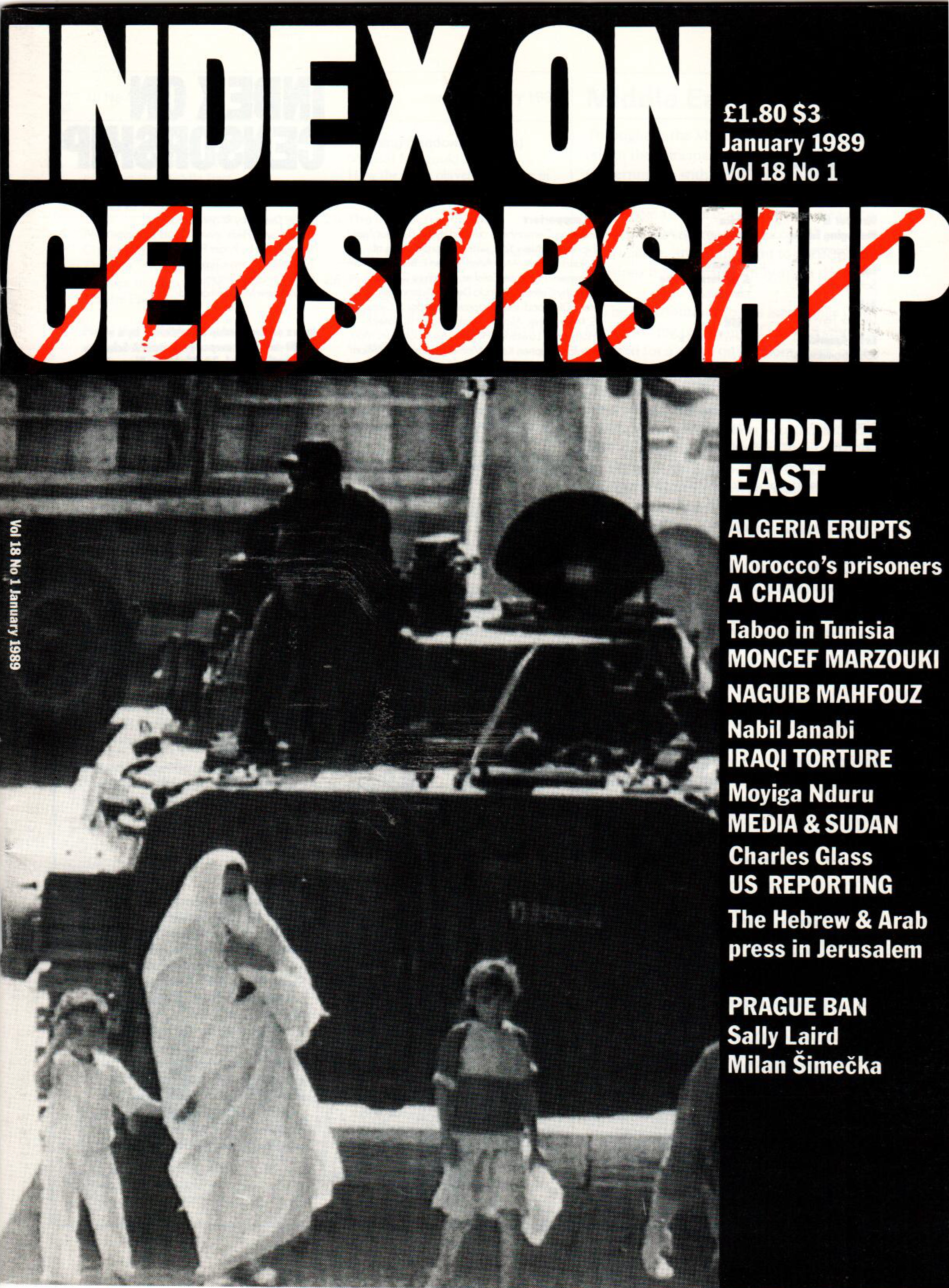
In this issue, Index on Censorship magazine explores censorship in Morocco, Tunisia, Syria, and Israel.

In this issue, Index on Censorship magazine explores the right of Africans to choose their rulers and establish a system of holding them accountable.
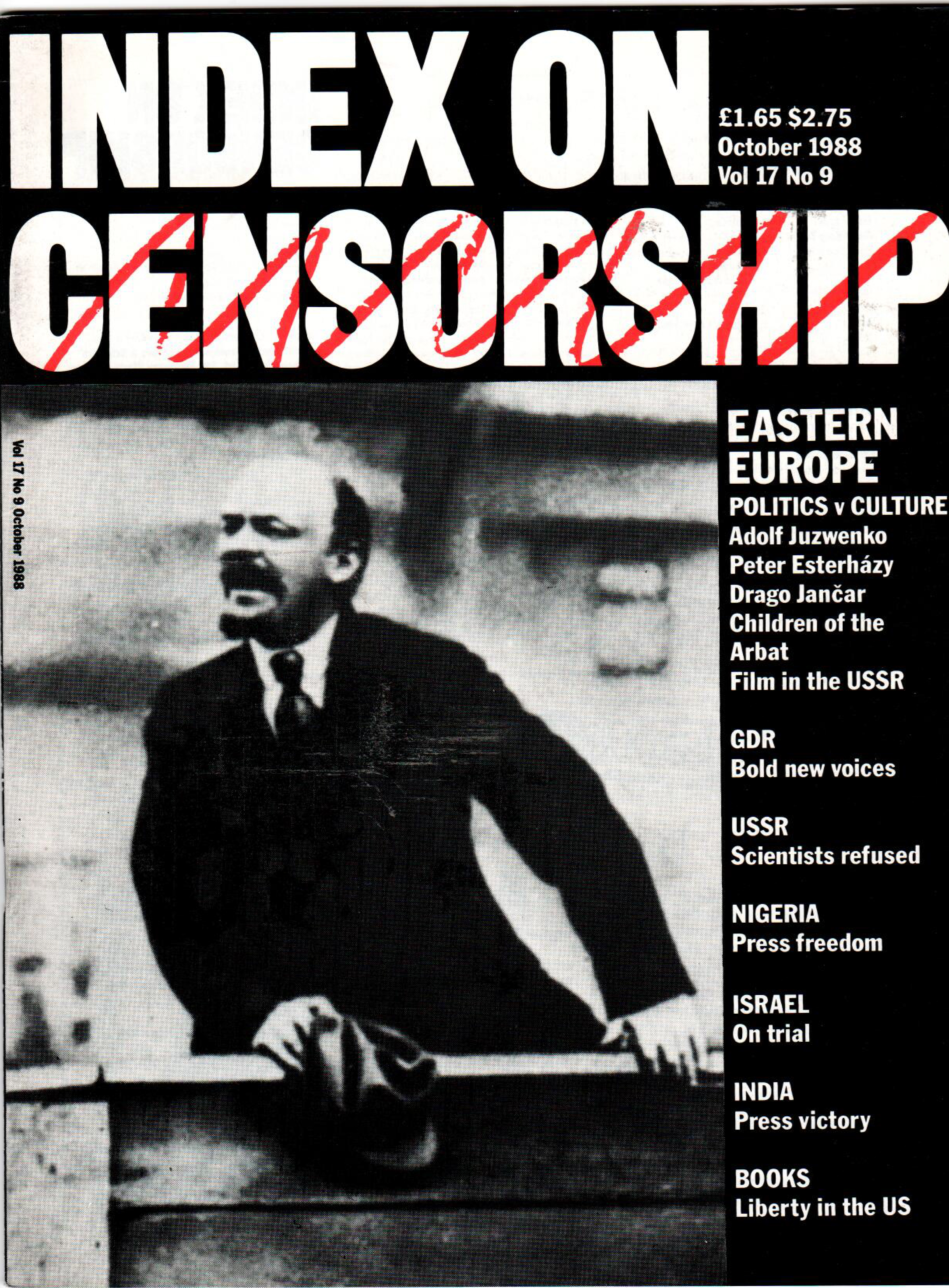
In this issue, Index on Censorship magazine explores the right of Africans to choose their rulers and establish a system of holding them accountable.
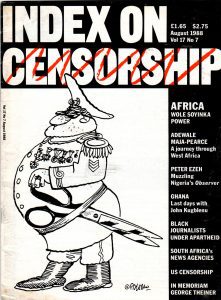
[vc_row][vc_column][vc_column_text] by Matthew Hoffman At a party not long ago, I met a man who told me that he had been trying to write a script for broadcast on one of the foreign services to Eastern Europe. His job was to try to explain why the...
A quarterly journal set up in 1972, Index on Censorship magazine has published oppressed writers and refused to be silenced across hundreds of issues.
The brainchild of the poet Stephen Spender, and translator Michael Scammell, the magazine’s very first issue included a never-before-published poem, written while serving a sentence in a labour camp, by the Soviet dissident Aleksandr Solzhenitsyn, who went on to win a Nobel prize later that year.
The magazine continued to be a thorn in the side of Soviet censors, but its scope was far wider. From the beginning, Index declared its mission to stand up for free expression as a fundamental human right for people everywhere – it was particularly vocal in its coverage of the oppressive military regimes of southern Europe and Latin America but was also clear that freedom of expression was not only a problem in faraway dictatorships. The winter 1979 issue, for example, reported on a controversy in the United States in which the Public Broadcasting Service had heavily edited a documentary about racism in Britain and then gone to court attempting to prevent screenings of the original version. Learn more.